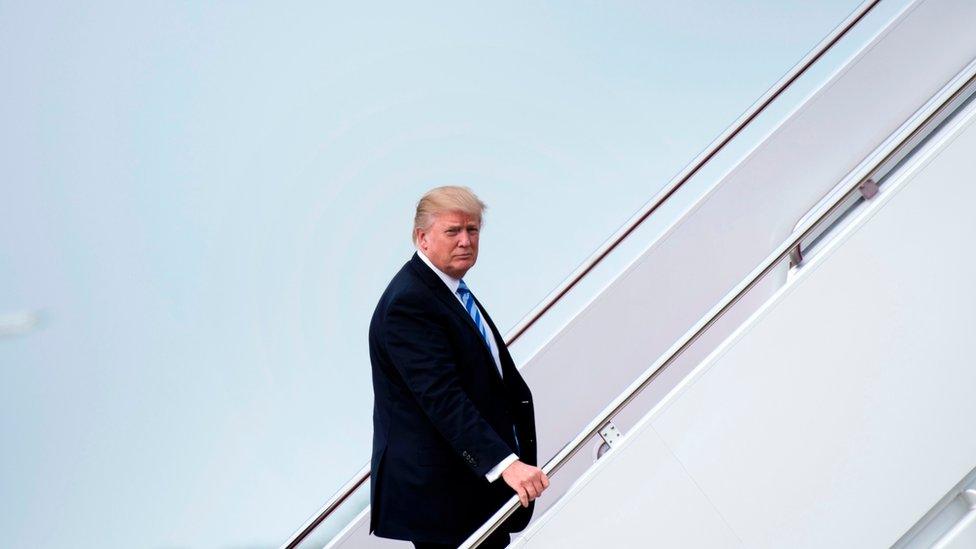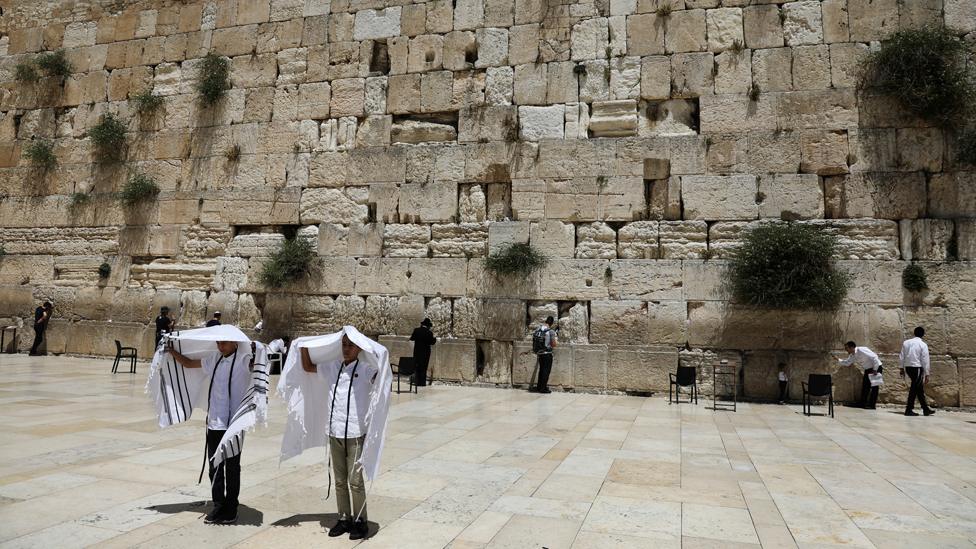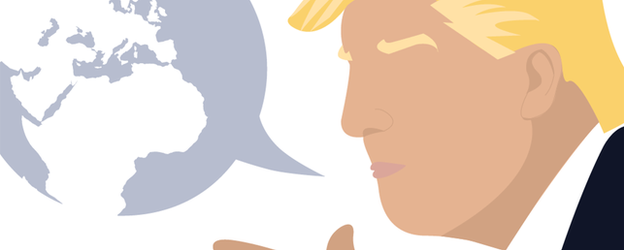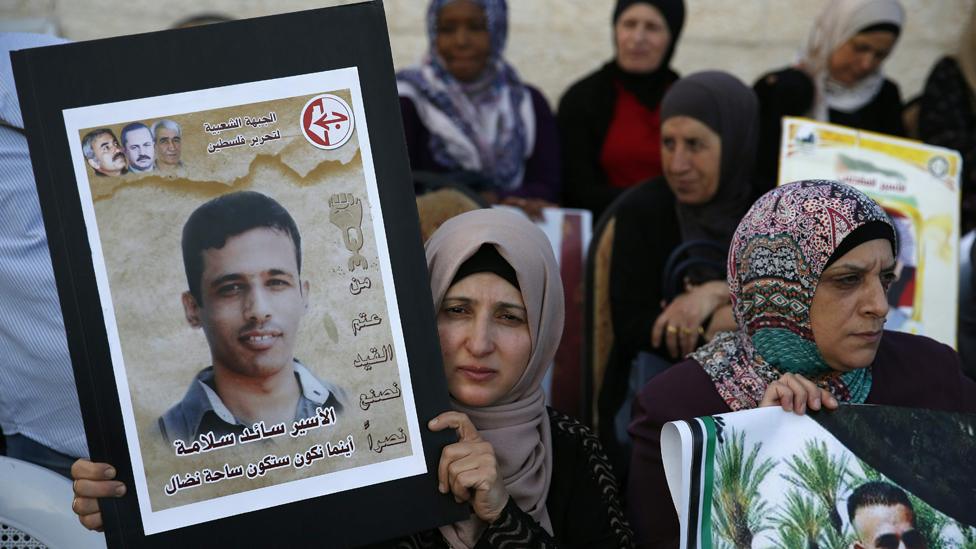Advice for Trump on his first trip overseas
- Published

Trump is set for his first foreign trip, after a honeymoon period hunkered down at home
Before Donald Trump became president he would often spend days holed up in Trump Tower in New York, shuttling in a private elevator between his penthouse apartment and office.
And it's been a similar story since he moved into the White House, where he divides his time between the East and West Wings, leaving only to spend weekends at Trump-branded resorts.
As a candidate he foreshadowed a homebody presidency - touting himself as the "America First" leader who would shun foreign travel to fix the "carnage" in the US.
But now he's on his way to Saudi Arabia, to Israel, to Rome, to Brussels and Sicily, with a hugely ambitious agenda. The two things are not at odds, HR McMaster, the president's National Security Adviser, told me.
"President Trump understands that America First does not mean American alone," he said.
"To the contrary, prioritising American interests means strengthening alliances and partnerships that help us extend our influence and improve the security of the American people."

Youth hold their prayer shawls as they stand in front of the Western Wall, Judaism's holiest prayers site in Jerusalem's Old City
Mr Trump will visit the centres of the Muslim, Jewish and Christian faiths on this trip - a first for any president.
So how can he avoid the pitfalls that have befallen his interactions at home?
General Wesley Clark, the former Supreme Allied Commander of Nato, had a few tips for a president who struggles to grasp foreign policy and stay on-message.


Find out which foreign leaders President Trump has met or called since taking office, as well as the countries he has mentioned in his tweets.

"Say the right things, don't say the wrong things, and maintain composure," he says.
"Some unexpected things are likely to happen, keep discipline, have the right frame of reference when you talk and say as little as possible when you don't know things."
Among the foreign-policy goals Mr Trump has set himself, the most ambitious is bringing peace to the Middle East - a geo-political conundrum that has stymied far more experienced presidents than this one.
But he seems to be confident. "It's something that I think is frankly maybe not as difficult as people have thought over the years," he said during a recent meeting with Palestinian leader Mahmoud Abbas.
I asked Mr Trump's British-educated counter-terrorism adviser Sebastian Gorka whether the celebrity real-estate mogul-turned-president had the right qualifications for such a task.
"We have in the commander-in-chief, in the president, truly the master of the deal," he said.
"This is a man who spent 50 years negotiating - if there's anyone who can bring stability and peace it is Donald Trump."

More on the Trump presidency

So on the one hand you have a deal over the price of a piece of real estate in New York. On the other, intractable disputes that go back thousands of years over the right of return of refugees, final status for Jerusalem, whether to negotiate with Hamas, and on.
"I don't think it's not just a question of doing real estate deals," said Mr Gorka. "This is a man who didn't just do deals, he was monumentally successful in the hardest market in the world - Manhattan real estate. And at the end of the day, deals are about human beings."
In reality, Mr Trump might find the Middle East a harder market than New York. But even if he falls short of fixing the Middle East, the president's first foreign trip could serve as a welcome distraction from his woes at home.
There will likely be a warm reception waiting for him in Israel and Saudi Arabia, where he has two key things going for him: he isn't Barack Obama, who was widely disliked there by the end of his presidency, and he has taken a hard line on Iran.

Families of Palestinians imprisoned in Israeli jails demonstrate in Jerusalem as hundreds of the detainees entered the second month of a hunger strike.
The trip might also allow Mr Trump to divert the narrative from the Russia scandal, said Ron Christie, a Republican strategist who served in the Bush White House.
"The minute that he leaves the United States on that plane the entire focus would be what's going on abroad - what the president says and how he acts, as opposed to some of the domestic issues that are dogging him here at home.
"This is a good opportunity for him to turn the page and get a fresh start."
And if anyone needs a fresh start it's Donald Trump. The way the first 120 days of his presidency have gone, he might just find the warm air of Saudi Arabia and Israel a refreshing break from the fetid swamp of Washington DC.